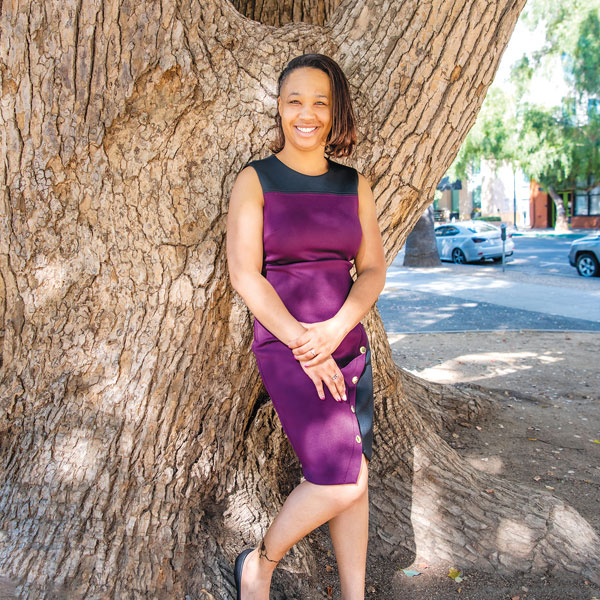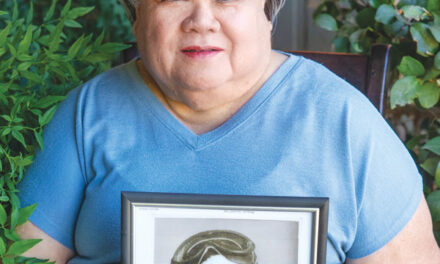Talking about mental health is Nefertiti Khemet Goudjayi’s mission.
As a licensed clinical social worker, mental health therapist and member of the Stop Stigma Sacramento Speakers Bureau, Khemet Goudjayi wants to normalize conversations about mental health.
“I joined the speakers bureau because I was looking for something to do with my time that also gives back in a more personal way,” the North Sacramento resident says. “As a therapist, you’re there to support people, but you’re removed. You provide expertise, but not your own experience. This volunteer space allows me to use my lived experience to help and support people.”

Khemet Goudjayi has experience with depression, anxiety and ADHD. As part of her work with the speakers bureau, she discusses how to access services for learning disabilities at school. It’s “something that’s not as talked about,” she says.
Stop Stigma Sacramento’s project “Mental Illness: It’s not always what you think” was initiated by Sacramento County Department of Health Services to reduce stigma and discrimination around mental illness.
The project provides mental health information, resources and support to individuals and families. The program is funded by the Mental Health Services Act, which adds a 1% tax to incomes of more than $1 million per year.
“I was lucky,” Khemet Goudjayi says. “I was able to get tested for a learning disability after a family friend encouraged me to do so. Without them, I never would have known that I could receive the type of support I ended up getting.”
During her eight years with the speakers bureau, Khemet Goudjayi has come to realize how lucky she was to get early support. The stigma around mental illness is “huge” in the African American community, she says.
“By the nature of our living as African Americans here in the U.S., we are experiencing trauma and we must work hard to maintain our mental wellness,” she says. “There’s this perception in the community that if you go to a therapist or experience mental illness, you’re crazy, or that you don’t need to go to therapy because you’re physically strong. Physical strength does not always equal mental wellness. It takes practice and reflection.”
Khemet Goudjayi praises the Stop Stigma platform for its easily navigable online menu of services, support and resources. Included are links and phone numbers for crisis hotlines, information about insurance, firsthand stories and conversation starters to help support a friend or loved one.
“There are things we can do in daily life to be seen as a support person,” Khemet Goudjayi says. “Truly listen and reflect back what an individual is saying in a way that is compassionate. You don’t have to have the answer or solution at the moment, but stay in communication. Also, know your resources. It can be as simple as saying, ‘We will figure out how to get you support.’ Stop Stigma Sacramento’s website is very useful in reducing the stigma and shame around seeking services.”
Khemet Goudjayi says the “Mental Illness: It’s not always what you think” project is actively seeking people living with mental illness to join the speakers bureau to help others—and often themselves.
“This work has helped me in my own healing,” Khemet Goudjayi says. “Because I speak on my personal experience with mental illness, I have to think a lot about it and that’s helped me realize the healing I’ve gained through the years.”
For information, visit stopstigmasacramento.org.
Jessica Laskey can be reached at jessrlaskey@gmail.com. Follow us on Facebook, Twitter and Instagram: @insidesacramento.















